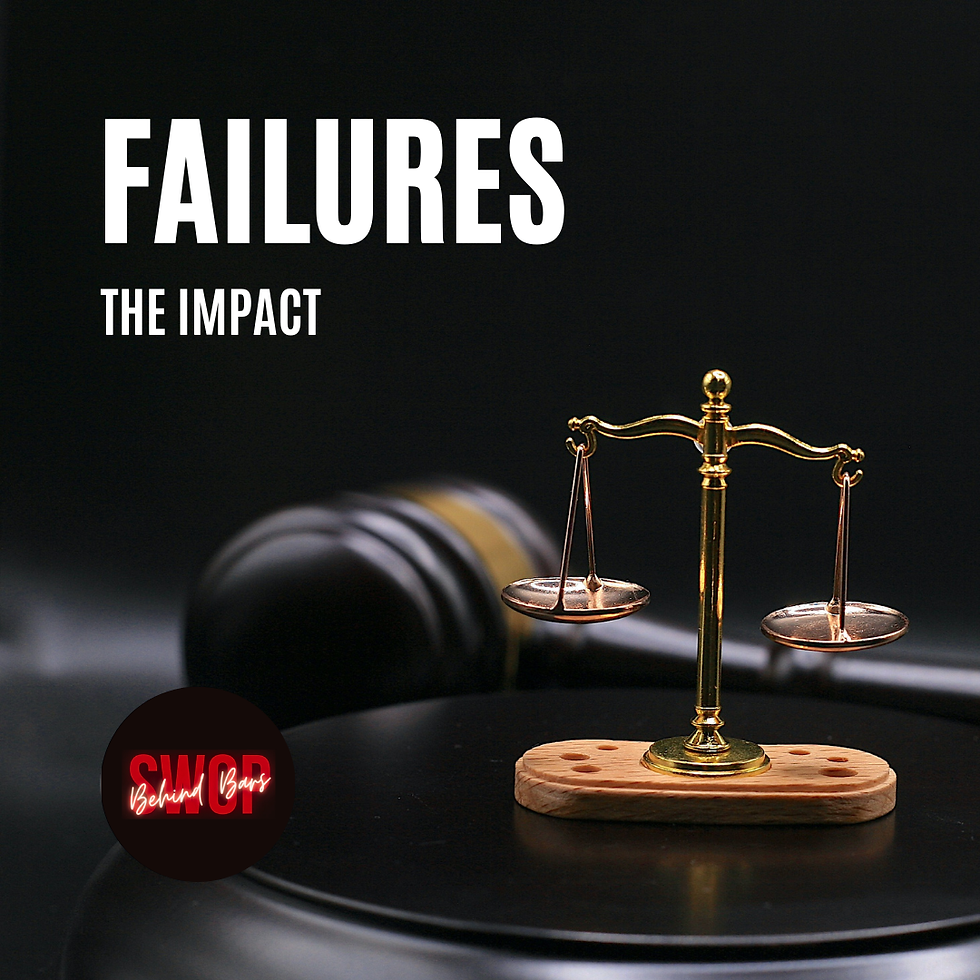
The prison system in the United States is one component of an outdated criminal justice structure that continues to fail in achieving justice or rehabilitation. Much like the criminal justice system as a whole, the prison system is riddled with systemic failures, driven by bureaucracy, corruption, and abuse. When someone is sentenced to prison, they are thrust into a hidden world where the harsh realities of violence, exploitation, and neglect are common, and those responsible for oversight turn a blind eye. Prisons are shielded from public view, enabling generations of abuse, including sexual violence, to thrive within their walls.
PREA, the Prison Rape Elimination Act, enacted in 2003, was intended to address the rampant issue of sexual abuse in U.S. prisons and jails. However, like much of the prison system, PREA operates within the same broken framework that it claims to reform. Despite its efforts to create a zero-tolerance policy for sexual violence, PREA has done little to challenge the ingrained culture of abuse, and the power dynamics within these facilities continue to expose prisoners to harm. This is especially true for the most vulnerable populations, such as LGBTQ+ individuals, women, and disabled people, who are disproportionately affected by violence.
Ashley Diamond’s case is emblematic of how PREA falls short. Ashley Diamond was a transgender activist, singer and actress incarcerated in Georgia for a non-violent offense. During her incarceration, Diamond reported multiple instances of sexual assault by both staff and other inmates. Despite using PREA’s reporting mechanisms, her cries for help were dismissed. She faced retaliation in the form of solitary confinement and was denied necessary medical care, both of which are violations of PREA’s guidelines. The system, designed to prevent abuse, instead perpetuated it. This is not an isolated case; it’s a symptom of the larger problem.

PREA: A System Corrupted by Design
PREA’s core weaknesses stem from its poor enforcement and systemic corruption. While the law mandates standards for reporting, training, and audits, it fails to deliver real accountability. The Department of Justice (DOJ) didn’t intervene in Ashley Diamond’s case until 2021, many years after her first reports of abuse. Non-compliant facilities face minimal penalties, such as a 5% reduction in federal funding—a slap on the wrist that does little to motivate real change.
More alarmingly, PREA excludes certain detention centers, such as immigration facilities and private prisons, from its standards. This exclusion leaves vulnerable populations, including immigrants and asylum seekers, without any real protection. A 2024 report from Physicians for Human Rights revealed a glaring lack of PREA compliance, especially in smaller and rural facilities where oversight is weak, and resources are scarce. The very institutions responsible for safeguarding people behind bars are the ones most complicit in their abuse.
The culture within prisons, especially in rural areas where they are often the largest employers, contributes significantly to this failure. Corrections officers, wardens, and other staff often belong to the same tight-knit communities, making it difficult for anyone to report abuse without fear of social and professional retaliation. Even in the best-case scenarios, staff are poorly trained, underpaid, and overworked, further exacerbating the problem.

Prison Community Culture and Low Wages: Barriers to Accountability
In many rural areas, prisons are economic lifelines. They provide jobs in otherwise economically deprived regions, and prison workforces are often composed of families or people with deep social ties. In such environments, reporting sexual abuse becomes nearly impossible. Corrections officers and staff are less likely to challenge their coworkers or supervisors, knowing that doing so could damage relationships within their community or even their own job security. This insularity creates a culture of silence where abuse is ignored or even tacitly accepted.
Low wages for prison staff lead to a revolving door of underqualified personnel, who receive little to no training in trauma-informed care or abuse reporting procedures. The result is a system where reports of abuse are either mishandled or actively suppressed. Anonymous reporting, a critical component of PREA, is rendered ineffective in these environments because the close social networks make anonymity impossible.
This dynamic is especially harmful to LGBTQ+ prisoners, who already face disproportionate levels of violence and abuse. Transgender individuals, like Ashley Diamond, are often housed in facilities that do not align with their gender identity, subjecting them to harassment and violence from both inmates and staff. The formal protections PREA claims to offer are useless in an environment where reporting abuse makes you more vulnerable to retaliation.

Structural Failures and Impact on Vulnerable Populations
PREA’s mandate to offer multiple avenues for reporting sexual abuse, such as anonymous hotlines and third-party channels, is rarely fulfilled in practice. Victims face systemic barriers that prevent them from accessing these channels. Confidentiality is nearly impossible in prisons, and retaliation against those who report abuse is rampant. This retaliation often takes the form of punitive measures like solitary confinement, which is presented as "protection" but in reality, serves to isolate and silence victims.
Training, one of PREA’s pillars, is woefully inadequate. Staff are often uninformed about how to handle sensitive reports of abuse, leading to dismissive or harmful responses. The most vulnerable groups—LGBTQ+ individuals, juveniles, disabled people—are left with no real recourse. Even when reports are made, they are often dismissed, or investigations are superficial, with little chance of meaningful change.
The prison system’s resistance to reform extends beyond individual facilities. Sexual violence is treated as an inevitable part of incarceration, and attempts to challenge this norm are met with institutional indifference or outright hostility. PREA audits, which are supposed to ensure compliance, are self-conducted by the facilities themselves, creating a glaring conflict of interest. Non-compliant facilities can simply choose to forgo federal funding, meaning that there are no real consequences for ignoring PREA standards.
A Way Forward: Rethinking PREA and Prison Accountability
How can a system so broken be reformed? The reality is that the prison industrial complex, with its deep-rooted structures of abuse, exploitation, and control, is beyond saving. While abolitionists push for the total dismantling of the prison system, there are immediate steps that can be taken to reduce harm, particularly when it comes to addressing sexual violence in prisons.
First, there needs to be a completely independent reporting mechanism for incarcerated individuals to report sexual abuse. This system must be separate from the Department of Corrections and not tied to the facility's funding streams. Whether through a national hotline, text, or tablet system, this reporting line should allow for anonymous and confidential reports that bypass the corrupt internal channels that currently exist.
Second, special consideration must be given to vulnerable populations, such as LGBTQ+ individuals, juveniles, and people with disabilities. These groups face unique challenges in reporting abuse, and the system must be designed to accommodate their needs and provide them with additional protections.
Finally, strict measures must be in place to protect those who report abuse from retaliation. The national reporting line should have the authority to intervene immediately, ensuring that victims are removed from unsafe environments and given access to the medical, mental health, and legal support they need.

Ultimately, while PREA was created with good intentions, it has failed to address the systemic issues that perpetuate abuse in prisons. Abolishing the prison system is the only true way to eliminate these abuses, but until then, we must fight for real protections and accountability for those who are most vulnerable behind bars.
Prison is the sentence for the crime; prisoners should not have to suffer additional punishment or abuse during their incarceration.

Comments